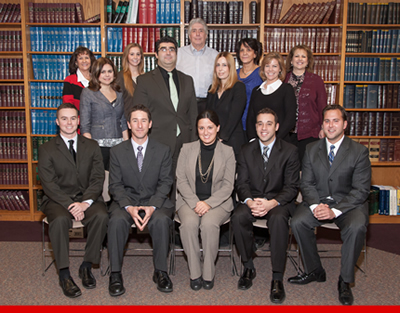District Court Arraignment

District Court
Misdemeanor
At a misdemeanor arraignment, the defendant will be given a chance to enter a plea to the charge: plead guilty, plead not guilty, or stand mute (i.e., remain silent, which is treated by the court as if the defendant pled not guilty). If he pleads guilty or no contest, the Judge may sentence him on the spot or may reschedule the case for a sentencing date, which will give the probation department time to prepare a pre-sentence report including background information about the defendant and the crime, make a sentencing recommendation, etc. If the defendant stands mute or pleads not guilty, the case will be scheduled for a pre-trial conference.
Pretrial Conference
In traffic and non-traffic misdemeanor cases, this is the defendant’s second court appearance. It is a scheduled meeting between an Assistant Prosecuting Attorney and the defendant (or his attorney) to determine whether the case will go to trial or be resolved with a plea. These meetings focus on resolving the case short of trial. The Judge and witnesses are not involved in misdemeanor pre-trial conferences. If a plea bargain is going to be offered by the Prosecutor, it is done here.
Pretrial Proceedings
Many other events can occur prior to trial. Depending on the nature of the case, there may be pre-trial hearings on Constitutional issues (confessions, searches, identification, etc.). The issues are presented to the Court through written “motions” (e.g., Motion to Suppress Evidence, etc.). The judge must determine whether evidence will be admitted or suppressed at the defendant’s trial, whether there is some legal reason why the defendant should not be tried, or decide other ground rules for trial.
Felony
At a felony arraignment in District Court, the defendant does not plead guilty or not guilty. He is advised of his right to a preliminary examination within 14 days of the arraignment. The court reviews requests for court-appointed attorneys at the arraignment.
Felony Preliminary Examination
A contested hearing before a District Court Judge, sometimes called a “probable cause hearing”. The Prosecutor presents witnesses to convince the Judge that there is probable cause to believe that a crime was committed and that the defendant committed the crime. Because the burden of proof is much less than at a trial, the Prosecutor generally does not call all potential witnesses to testify at the “prelim”; generally, the victim and some eye witnesses plus some of the police witnesses testify. The defendant (usually) has an attorney, can cross examine the witnesses, and can present his own evidence (including witnesses). If probable cause is proven, the defendant is “bound over” (i.e., sent to) Circuit Court for trial. If probable cause is not proven, the felony charge can be dismissed or reduced to a misdemeanor for trial in District Court. A defendant can decide not to have a Preliminary Examination. Most felonies arrive in Circuit Court after such a “waiver”.


